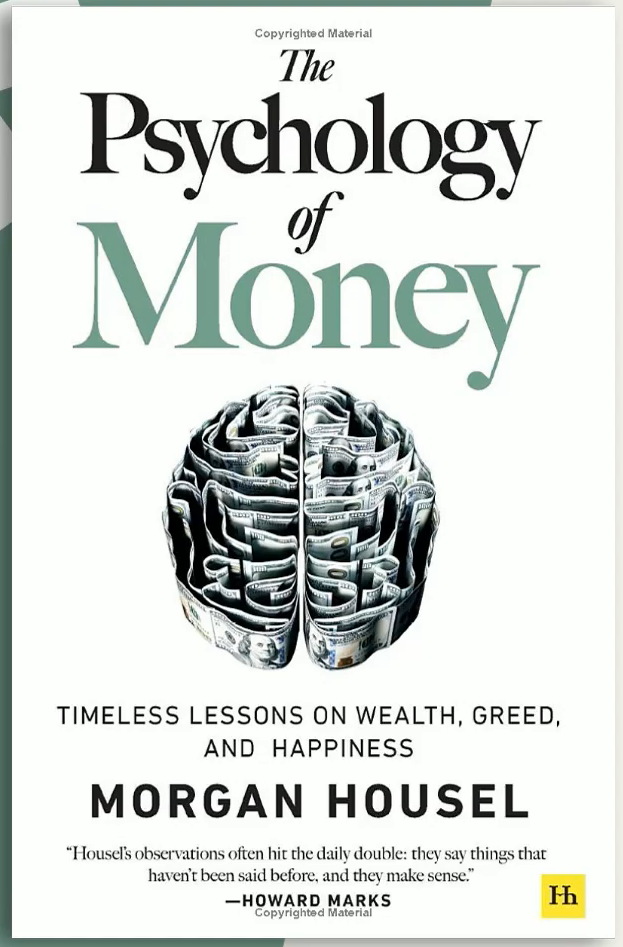This post contains affiliate links. As an Amazon Associate, I earn from qualifying purchases.
TL;DR (2 Lines)
Smart money decisions are behavior decisions. Morgan Housel’s 19 stories show how mastering psychology—not spreadsheets—drives lasting wealth.
Buy The Psychology of Money on Amazon
Why This Book Matters in 2025
- Financial markets are faster than ever, but human psychology hasn’t changed in millennia.
- Household debt is near record highs, yet so is access to investing tools.
- The winner isn’t the smartest analyst; it’s the calmest decision‑maker. Housel hands you that emotional edge.
10 Key Lessons You Can Use Today
- Compounding is magic only if you let time do its job — chase hot gains and you break the spell.
- Getting wealthy vs. staying wealthy: bold risks build fortunes; defensive habits keep them.
- Enough is the ultimate financial benchmark. Identify it early to avoid lifestyle creep.
- Luck & risk are siblings. Respect both before judging outcomes—yours or anyone else’s.
- Freedom > Ferraris. Money’s greatest dividend is control of your time.
- Save like a pessimist, invest like an optimist. Prepare for shocks while betting on long‑term progress.
- Narratives move markets more than numbers. Master stories; spreadsheets follow.
- Wealth is what you don’t see. Flashy spending often signals the absence of real assets.
- Past ≠ future. History is the set of surprises that didn’t happen; expect new ones.
- Behavior > IQ. Emotional control beats analytical brilliance when stakes are high.
Memorable Quotes
“Doing well with money has little to do with how smart you are and a lot to do with how you behave.”
“Save money and invest the difference—the only universal financial truth.”
Who Should Read It?
- Early‑career professionals who want a mindset advantage before their first big pay‑raise.
- Entrepreneurs & freelancers juggling irregular cash flow.
- Seasoned investors needing a behavioral tune‑up after a volatile market cycle.
- Parents & educators teaching the next generation real‑world money skills.
Action Plan (5 Minutes to Start)
- Calculate “Enough.” Write the annual spending level that buys you contentment instead of endless accumulation.
- Automate 1% extra savings every quarter—behavioral inertia works for you.
- Schedule a no‑trade day each month to review goals, not prices.
- Share a lesson from the book with a friend; teaching cements learning.
- Re‑read Chapter 19 (“All Together Now”) every January as a reset ritual.
Final Thoughts
If you’ve ever felt that mastering money is more about grit than graphs, The Psychology of Money will feel like a candid conversation with a wise friend. By the last page you’ll understand why patience, humility and self‑awareness beat flashy stock tips every time.
Ready to rewire your wealth mindset?
👉 Grab your copy on Amazon today »
Disclosure: As an Amazon Associate, IRead Nest earns from qualifying purchases. Thank you for supporting the site!
